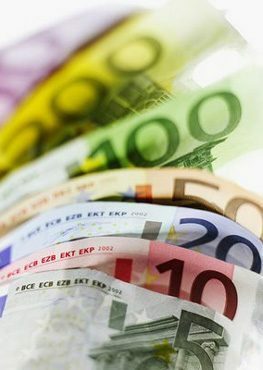Definition of Commodity Fetishism
Miscellanea / / April 22, 2022
concept definition
Developed by Karl Marx (1818-1883) in his work Capital (1867), in relation to the issues that he had previously dealt with around the notions of alienation and ideology. Although it has been treated briefly in the work of Marx, it has provoked great debates between different Marxist authors up to the present.

Professor in Philosophy
Use value and exchange value
To understand the concept of commodity fetishism, it is necessary to understand the transformation that occurs in terms of the value of an object when it becomes a commodity. The produced objects have a use value, when they are considered in terms of their ability to satisfy human needs. In this sense, the objects considered materially do not hide anything "mysterious". Now, when use value is exchanged for exchange value, the object starts to be considered according to its characteristics as a good of exchange, that is, as merchandise. In this transformation, which seems to be trivial, the status of the object, since it acquires certain metaphysical characteristics that are decisive.
The object, then, not only covers the sensible properties that it previously brought with it, but also receives supersensible properties that are not linked to its use, but to its ability to be interchangeable. The value of the object, now, no longer depends on its materiality, but is subordinated to the possibility of exchange, that is, it becomes a value commensurate with the value of the other objects.
The result of this process is that the shape of the production is also substantially modified, since it ceases to be organized with the main purpose of satisfy human needs and begins to organize itself with the aim of generating objects for the exchange.
The fetishization of merchandise
The consequence of the universalization of the form of production aimed at mercantile exchange is that all the products of the work of man are homogenized, to the extent that they can only be considered under a single quality, namely, the value of change. At the same time, the social relations of production change: the workers cease to relate directly with each other and with the product of their work and that relationship becomes mediated by the value of change. This is how the relationship between subjects is transposed into a relationship between goods: human relationships are become relationships between values arbitrarily assigned to things, under a criterion of homogeneity that delete your diversity after the exchange. Qualities are subordinated to quantities; At the same time, the value of human labor dedicated to production, by separating the product from the producer, is thought of as an attribute of the product itself. The social character of production translates into a social relationship between objects, which exists independently of the producers.
Thus, the concept of commodity fetishism It illustrates the process by which human relations of production, under a mercantile regime, are transformed into relations between objects. This has also been called, by authors such as G. Luckács (1885-1971), under the notion of reification, insofar as the form of relationship between individuals is determined by the exchange value, as if it were a quality of the things themselves. In other words, human relations are lived, no longer as genuine social relations, but as mercantile exchanges, subordinated to the laws of the market.
Objectification supposes an inversion: while things are observed under the illusion that they are related to each other, acquiring an agency capacity apart from their producers; producers lose this capacity and assume a attitude contemplative in front of the world. The essential feature of the notion of fetishism is thus that products are presented as figures autonomous, with its own life.
Money as a privileged commodity
In the context of mercantile relations of production, money not only functions as a representation of value, but also, as a commodity, has its own power. Marx points to the charactermystical” of money insofar as it produces an inversion of objects into subjects, and vice versa. The value of men, then, depends on what they can become through money: the possessor of money is himself those things that he can buy.
Bibliographic references
Andreoli, M. (2018). Commodity fetishism: opacity and the generation of objectivity as ideological mechanisms. 150 years after the first edition of Capital. 1867-2017, 23.
Marrero, N. AND. (2019). Alienation, Ideology and commodity fetishism. From Marx to Slavoj Zizek. Actuel Marx Interventions Magazine, (26), 32-50.
Topics in Commodity Fetishism


